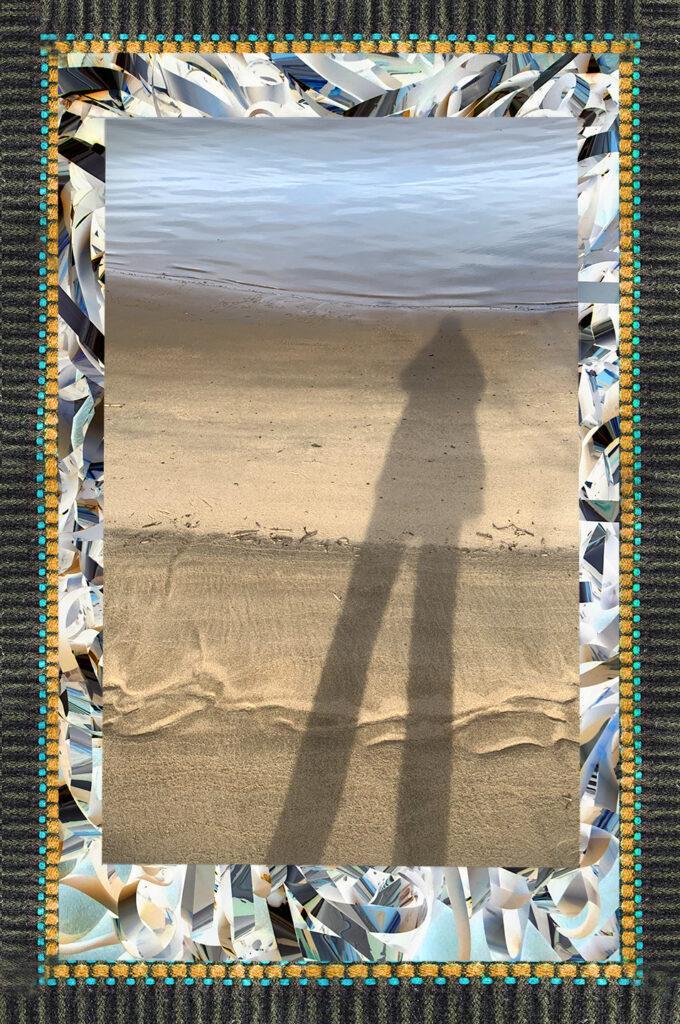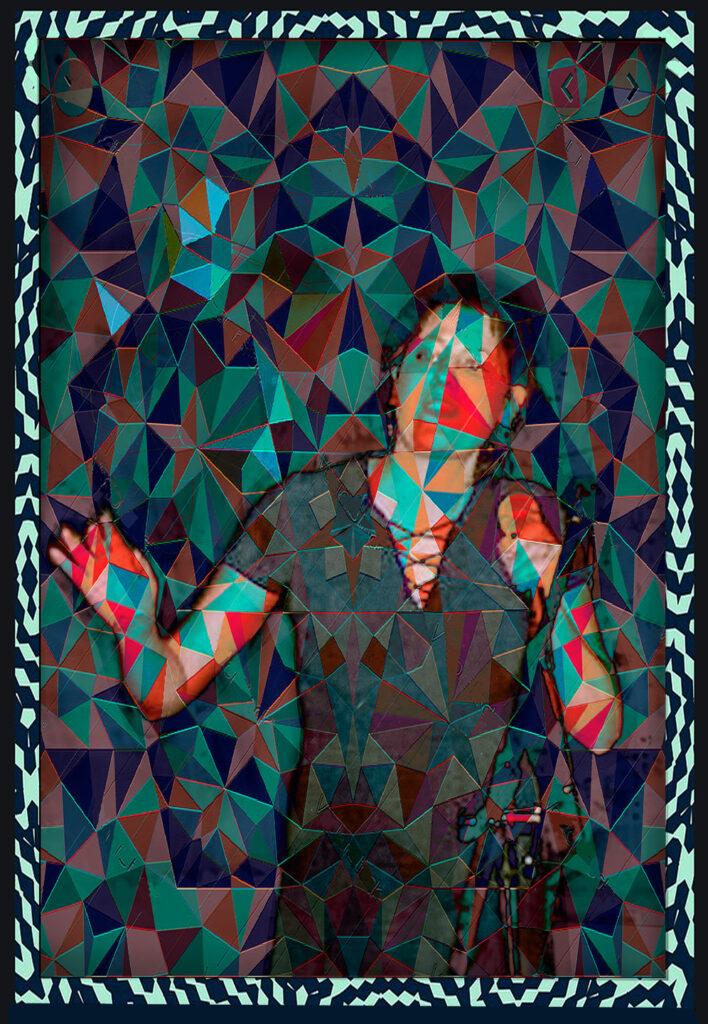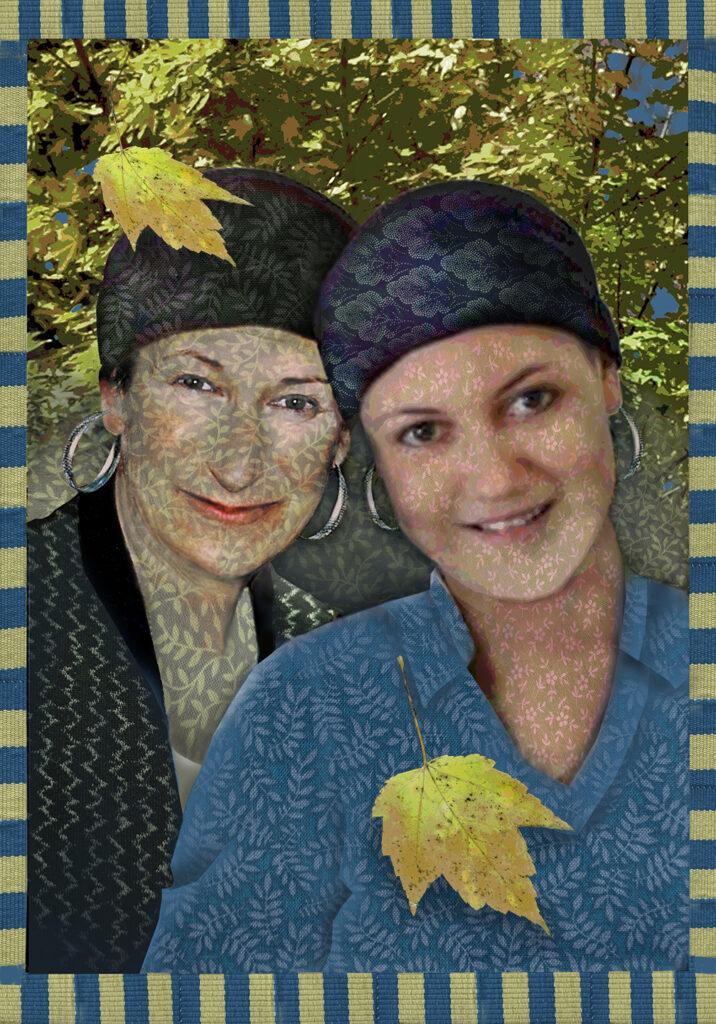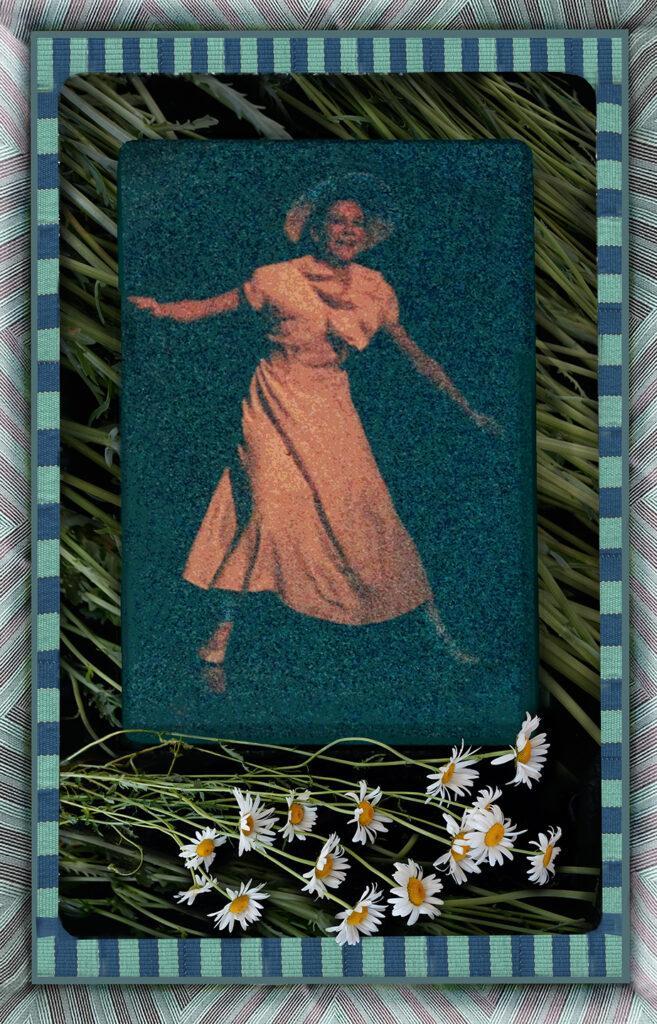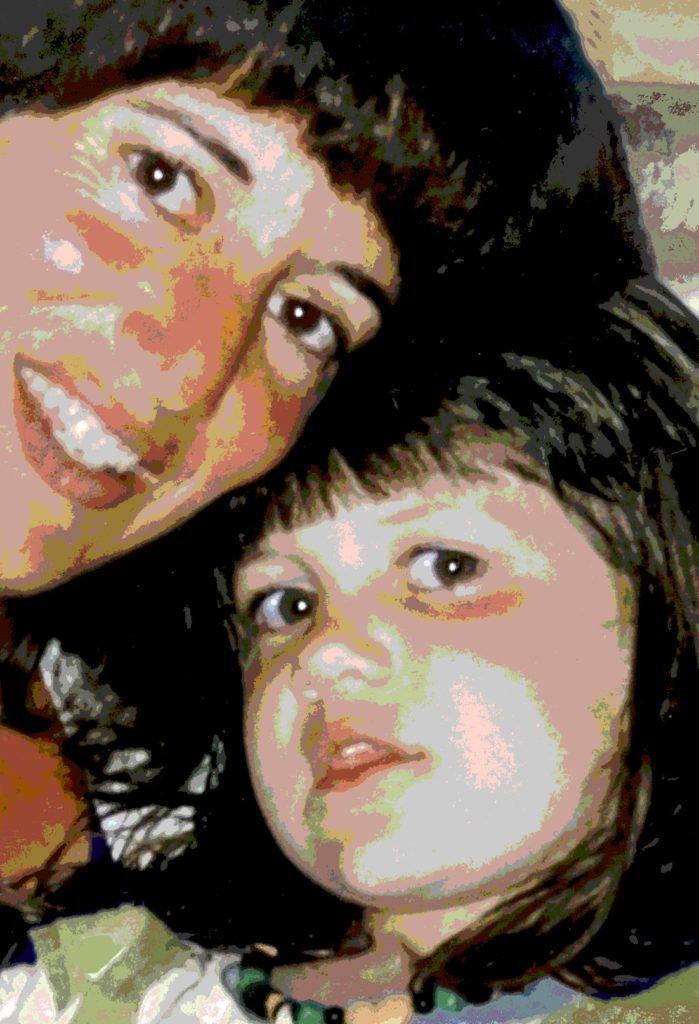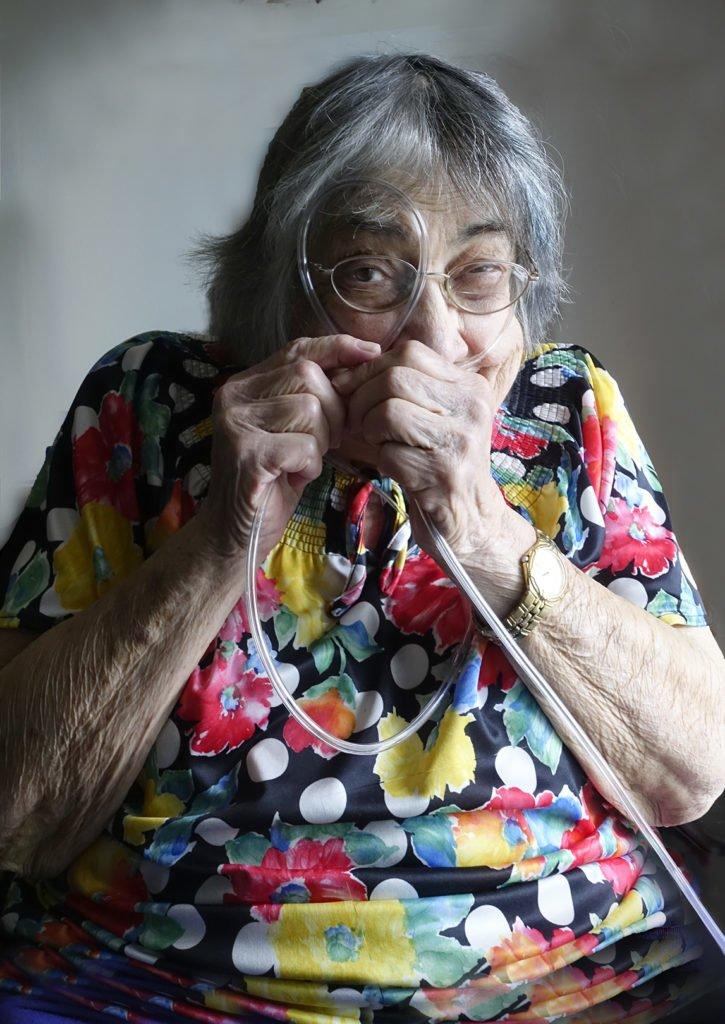My mission on the southeastern coast of Australia is almost over on the day I decide to try a shortcut on the way back from my morning explorations. It’s a cliff path called the Discovery Walk. I take it. But whatever one is supposed to discover on this path is lost to me as I just want to get back to my room, and the bathroom in particular, as soon as possible. Following the path, I heavily descend the stairway to the beach, and find the incoming tide has swallowed up the bottom steps of the cliff. A shallow pond now blocks my way across the beach to the motel. Too tired to hike back up the cliff and around through town, and too scared to wade through the small but growing swells of waves entering the pond, I stand immobilized. The bag of ashes in my backpack jabs, “Mom! Don’t be a wimp!” And then more gently, “You can do this.”
So I watch to time the waves, take a deep breath, and dash through the shallowest part. Right away a wave rolls in. It’s not a huge wave but my heart’s pounding wildly anyway. And my feet can’t find the damp sand ahead fast enough for my hundred-twenty pounds to catch up to them. I flounder. And fall. And the wave recedes, leaving me scrambling to rise from the shallows. Then, for seconds, before all the surfers and swimmers, sunbathers, and stray dogs on the beach, just at the intersection of my day’s path with theirs, I stand, shuddering. Sobbing. No, maybe I’m giggling. Uncontrollably on this beach. They must think I’m a madwoman. I try to stifle this torrent of emotion but it grows. And I don’t know if I’m laughing or crying but suddenly my bladder goes. Then I’m really wet. Yet somehow I know—I’m okay. It’s all going to be okay.
Because tomorrow’s coming. And who knows what will be blown in with tomorrow. There’s the trip to Melbourne, the Queen Victoria Market, the HuTong dumpling place, and the adventure of locating the nursing school Marika was to attend. And so much more to explore.
On my last night in Port Campbell. I return to the Loc Ard Motor Inn and unwrap a small take-away by the altar. A Lamington, Marika’s food item #5 that she never got to try. Covered with dark chocolate, dusted with coconut, the cube of cake sits perfectly in the palm of my hand. I sink my teeth into it and find it is spongy. Yellow. Sweet and soft with a touch of crunch. Lamingtons are integral to Australian childhood, typically available at school bake sales, I’d learned. Like brownies and chocolate chip cookies back home.
“You’d have baked these for your dad and your friends. You were like that. Only not with me,” I tell Marika’s ashes, recalling the blue-iced birthday cakes and sweet smiles she reserved for others. I never cared about the red velvet cakes. The time she spent hours making chocolate turtles and didn’t leave me a single one, I almost crumpled. And I might have buckled under completely because not a single one of her poems was written to me. Mostly what Marika left me was a bunch of mysteries. Like who is “deejaylungbutter” who she acknowledged in one of her songs? And who was the Australian she was flying to in the poem she wrote long before she ever met the Australian boyfriend? And what is the story about all the endless unruly brown spaghetti rendered from old VHS cassettes that lined the bottoms of her dresser drawers? There is so much more to be discovered. Or to remain unknown. All I know for sure is, I have Marika’s words. Her words have gutted caves and gorges in my mind. She didn’t have to bake or be nice to me. Marika always knew I loved her. And I know she loved me, as brash as she often was. In the hospital, fighting sedation near the end, she’d reached out to hug me. That’s what I need to remember.
